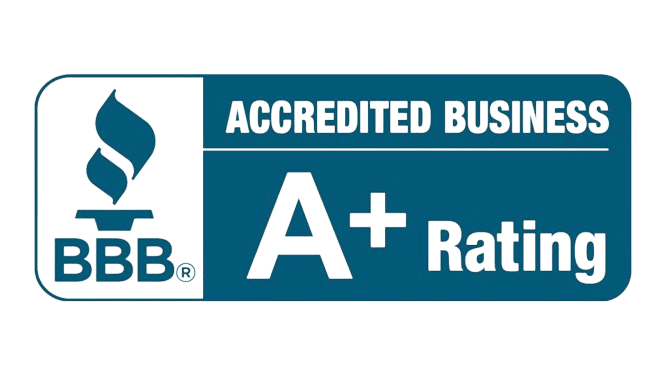Indoor Air Quality
Your living environment should be both comfortable and safe. While many homeowners focus on maintaining a temperature-controlled home, there’s more to creating an ideal living space than just heating and cooling. Indoor air quality plays a crucial role in your overall comfort and well-being. As Canadians spend more time indoors, ensuring that our indoor environments contribute positively to our health has become increasingly important.
The ideal home environment balances proper ventilation, air filtration, air purification, and humidity control. These factors work together to create a space that not only feels comfortable but also supports your health. If you’re concerned about the air quality in your home, the air quality specialists at Campeau Heating are here to help! We can guide you in improving your indoor air quality to ensure a healthier and more comfortable living space.

WHAT IS THE MAINTENANCE LIKE FOR A CENTRAL AIR CONDITIONER?
Our selection of indoor air quality products includes top-performing systems designed to keep your home’s air clean and healthy:
- Aldes HRV: A high-performance heat recovery ventilator that ensures fresh air circulation while maintaining energy efficiency.
- Napoleon HRV: A reliable and efficient solution for enhancing indoor air quality through effective heat recovery ventilation.
- Napoleon UVC: Advanced ultraviolet light technology to purify air and eliminate harmful microorganisms.
- Cinquartz Filtration: A cutting-edge air filtration system that captures airborne particles for a cleaner home environment.
- Electro Air 3-IN-1 TRUE HEPA, UVC & PCO AIR CLEANER: A comprehensive air cleaner that combines HEPA filtration, ultraviolet light, and photocatalytic oxidation for superior air purification.
These products are designed to improve ventilation, filtration, and overall air quality in your home, helping you create a healthier living space.
How Does Poor Indoor Air Quality Affect Your Health?
Have you ever considered what’s actually in the air you’re breathing? Many of the pollutants we inhale daily are invisible to the naked eye, but that doesn’t make them any less harmful. In fact, the Environmental Protection Agency (EPA) reports that indoor air can be 2 to 5 times more polluted than outdoor air. This alarming statistic holds true whether you live in a bustling city or a quiet rural area.
The air inside your home may contain a variety of harmful pollutants, including Volatile Organic Compounds (VOCs), radon, nitrogen dioxide, lead, mold, mildew, second-hand smoke, asbestos, and carbon monoxide. These contaminants can pose significant health risks to you and your family, including pets, without you even realizing it. Prolonged exposure to these pollutants can lead to serious health issues, making it crucial to be aware of the air quality in your home and take steps to improve it.
Health Symptoms Caused by Poor Indoor Air Quality
Poor indoor air quality can manifest in a variety of health symptoms that often go unnoticed or are mistaken for other ailments. Common symptoms include headaches, fatigue, dizziness, and shortness of breath, which can significantly impact your daily life. Other signs such as nausea, congestion, coughing, and irritation of the skin, eyes, nose, and throat are also common indicators of polluted indoor air. Additionally, poor air quality can exacerbate allergy symptoms and trigger asthma attacks, further affecting your well-being.
Given these potential health risks, it’s important to consider the quality of the air you’re breathing at home. Is your indoor environment truly as clean and safe as it should be? Taking steps to improve your indoor air quality can help alleviate these symptoms and contribute to a healthier living space for you and your family.
How to Monitor Your Indoor Air Quality
Understanding the health risks of poor indoor air quality is just the first step. The next is to actively prevent these issues by monitoring the air in your home. While you can’t always see the quality of your air, there are several warning signs to watch for that can indicate poor indoor air quality.
Be on the lookout for excess dust accumulation, strange or lingering odors, visible biological growth like mold or mildew, and persistent moisture or dampness. These signs can be early indicators that your indoor air quality may be compromised. By staying vigilant and addressing these issues promptly, you can help maintain a healthier and safer indoor environment for you and your family.
WHAT IS THE MAINTENANCE LIKE FOR A CENTRAL AIR CONDITIONER?
Improving your indoor air quality is essential for maintaining a healthy and comfortable living environment. Here are the top three strategies to help protect your home from harmful pollutants:
1. Air Filtration and Purification
Indoor pollutants can originate from various sources within your home, including fuel-burning appliances, chemical-based cleaning products, and central heating and cooling systems. These pollutants can compromise the air quality and pose health risks. Installing air filtration and purification systems can significantly enhance indoor air quality. Consider using UV light purifiers, HEPA filters, PCO filters (Photocatalytic Oxidation), and media filters to capture and neutralize these harmful particles, ensuring cleaner, healthier air.
2. Improved Ventilation
Proper ventilation is crucial for maintaining fresh air indoors. Poor ventilation can trap harmful pollutants inside your home, leading to poor air quality. Implementing ventilation systems like HRVs (Heat Recovery Ventilators) and ERVs (Energy Recovery Ventilators) can bring in fresh outdoor air and remove stale indoor air. This continuous exchange helps to dilute and expel pollutants, keeping your indoor air fresh and breathable around the clock.
3. Humidity Control
Controlling humidity levels is also vital for maintaining healthy indoor air. High humidity can promote the growth of biological pollutants such as mold and mildew, which thrive in damp environments. Mold, in particular, can lead to respiratory issues like shortness of breath, coughing, and irritation if left untreated. By managing the moisture levels in your home, you can prevent these issues and maintain a healthy balance in your indoor environment.
Our Affiliates






questions?
We pride ourselves on delivering unparalleled craftsmanship and competitive pricing for every project. Our knowledgeable and friendly team is here to guide you through selecting the best products and services for your unique requirements. When you choose Campeau Heating, you’re choosing a trusted partner with a legacy of excellence and a deep commitment to the community. Experience the difference of working with a company that values quality, comfort, and customer satisfaction above all else.
We offer a variety of ways to contact us to ensure your convenience. You can reach us by phone at 705-560-2441 during our office hours, Monday to Friday, 8 AM to 5 PM. Our showroom is also open on weekends from 9 AM to 1 PM, from September 3rd to May 31st, with summer visits available by appointment. Alternatively, you can fill out our online contact form, and a member of our team will get back to you promptly. At Campeau Heating, we’re committed to delivering top-notch service and support, so don’t hesitate to reach out with any questions or service requests.
